- Home
- Patricia Cornwell
All That Remains Page 10
All That Remains Read online
Page 10
By Sunday night, there was nothing more I could do. Deborah's and Fred's remains had been defleshed, degreased, photographed from every angle, the inventory of their bones completed. I was packing them in a cardboard box when the buzzer went off in back. I heard the night watchman's footsteps down the hall and the bay door open. Then Marino was walking in.
"You sleeping down here or what?" he asked.
Glancing up at him, I was surprised to note that his overcoat and hair were wet.
"It's snowing."
He pulled off his gloves and set his portable radio on the edge of the autopsy table where I was working.
"That's all I need," I said, sighing.
"Coming down like a bitch, Doc. was driving by and saw your ride in the lot. Figured you'd been in this cave since the crack of dawn and had no idea."
It occurred to me as I tore off a long strip of tape and sealed the box. "1 thought you weren't on evening shift this weekend."
"Yeah, and I thought you was having me in for dinner."
Pausing, I stared curiously at him. Then I remembered. "Oh, no," I muttered, glancing up at the clock. It was past eight P.M. "Marino, I'm so sorry."
"Don't matter. Had a couple of things to follow up on, anyway."
I always knew when Marino was lying. He wouldn't look me in the eye and his face got red. It wasn't coincidence that he had seen my car in the lot. He had been looking for me, and not simply because he wanted dinner. Something was on his mind.
Leaning against the table, I gave him my full attention.
"Thought you might want to know that Pat Harvey was in Washington over the weekend, went to see the Director," he said.
"Did Benton inform you of this?"
"Yo. He also said he'd been trying to get hold of you but you ain't returning his calls. The Drug Czar's complaining that you ain't returning her calls either."
"I'm not returning anybody's calls," I replied wearily. "I've been rather preoccupied, to say the least, and I don't have anything to release at this point."
Looking at the box on the table, he said, "You know Deborah was shot, a homicide. What are you waiting for?"
"I don't know what killed Fred Cheney or if there's any possibility drugs might have been involved. I'm waiting for tox reports, and I don't intend to release a thing until those are in and I've had a chance to talk to Vessey."
"The guy at the Smithsonian?"
"I'm seeing him in the morning."
"Hope you got four-wheel drive."
"You haven't explained the purpose of Pat Harvey's going to see the Director."
"She's accusing your office of stonewalling, says the FBI is stonewalling her, too. She's pissed. Wants her daughter's autopsy report, police reports, the whole nine yards, and is threatening to get a court order and raise hell if her demands aren't met right away."
"That's crazy."
"Bingo. But if you don't mind a little advice, Doc, I think you might consider calling Benton before the night's out."
"I don't want you getting burned, that's why."
"What are you talking about, Marino?"
I untied my surgical gown.
"The more you avoid everybody right now, the more you're adding fuel to the fire. According to Benton, Mrs. Harvey's convinced there's some sort of cover-up and all of us are involved."
When I did not reply he said, "Are you listening?"
"Yes. I've listened to every word you said."
He picked up the box.
"Incredible to think there's two people inside this thing," he marveled.
It was incredible. The box wasn't much bigger than a microwave oven and weighed ten or twelve pounds. As he placed it in the trunk of my state car, I said under my breath, "Thank you for everything."
"Huh?"
I knew he'd heard me, but he wanted me to say it again.
"I appreciate your concern, Marino. I really do. And I'm so sorry about dinner. Sometimes I really screw up."
The snow was falling fast, and as usual, he wasn't wearing a hat. Cranking the engine and turning on the heat full blast, 1 looked up at him and thought how odd it was that I should find him such a comfort. Marino got on my nerves more than anyone I knew, and yet I could not imagine him not being around.
Locking my door, he said, "Yeah, well you owe me."
"Semifreddo di cioccotato."
"I love it when you talk dirty."
"A dessert. My specialty, you big jerk. Chocolate mousse with ladyfingers."
"Ladyfingers!"
He stared pointedly in the direction of the morgue, feigning horror.
It seemed to take forever to get home. I crept along snowcovered roads, concentrating so fiercely my head was splitting by the time I was in my kitchen pouring myself a drink. Sitting at the table, I lit a cigarette and gave Benton Wesley a call.
"What have you found?"
he asked immediately.
"Deborah Harvey was shot in the back."
"Morrell told me. Said the bullet was unusual. Hydra-Shok, nine millimeter."
"That's correct."
"What about her boyfriend?"
"I don't know what killed him. I'm waiting on tox results, and 1 need to confer with Vessey at the Smithsonian. I'm pending both cases for now."
"The longer you pend them, the better."
"I beg your pardon?"
"I'm saying that I'd like you to pend the cases for as long as possible, Kay. I don't want reports going out to anyone, not even to the parents, and especially not to Pat Harvey. I don't want anyone knowing that Deborah was shot - " "Are you telling me that the Harvey's don't know?"
"When Morrell informed me, I made him promise to keep the information under wraps. So, too, the Harvey's haven't been told. Uh, the police haven't told them. They know only that their daughter and Cheney are dead."
He paused, adding, "Unless you've released something that I don't know about."
"Mrs. Harvey has tried to get hold of me a number of times, but I haven't talked to her or hardly anybody else during the past few days."
"Keep it that way," Wesley said firmly. "I'm asking you to release information only to me."
"There will come a point, Benton," I said just as firmly, "when I will have to release cause and manner of death. Fred's family, Deborah's family, are entitled to that by Code."
"Hold off as long as possible."
"Would you be so kind as to tell me why?"
Silence.
"Benton?"
I was about to wonder if he was still on the line.
"Just don't do anything without conferring with me first."
He hesitated again. Then, "I presume you're aware of this book Abby Turnbull is under contract to write."
"I saw something about it in the paper," I answered, getting angry.
"Has she contacted you again? Uh, recently?"
Again! How did Wesley know Abby had come to see me last fall? Damn you, Mark, I thought. When he had telephoned me, I had mentioned that Abby was with me that night.
"I haven't heard from her," I replied curtly.
6
Monday morning the road in front of my house was blanketed in deep snow, the sky gray and threatening more bad weather to come. I fixed a cup of coffee and debated the wisdom of my driving to Washington. On the verge of scrapping my plans, I called the state police and learned that 1-95 North was clear, the snow tapering off to less than an inch by Fredericksburg. Deciding that my state car wasn't likely to make it out of my driveway, I loaded the cardboard box in my Mercedes.
As I turned off on the Interstate, I realized that if I had a wreck or were pulled over by the police, it wasn't going to be easy explaining why I was heading north in an unofficial car with human skeletons in the trunk. Sometimes flashing my medical examiner shield wasn't enough. I never would forget flying to California carrying a large briefcase packed with sadomasochistic sexual paraphernalia. The briefcase got as far as the X-ray scanner, and the next thing I knew airport security
was squiring me away for what was nothing less than an interrogation. No matter what I said, they couldn't seem to get it through their heads that I was a forensic pathologist en route to the National Association of Medical Examiners' annual meeting, where I was to give a presentation on autoerotic asphyxiation. The handcuffs, studded collars, leather bindings, and other unseemly odds and ends were evidence from old cases and did not belong to me.
By ten-thirty I was in D.C. and had managed to find a parking place within a block of Constitution Avenue and Twelfth. I had not been to the Smithsonian's National Museum of Natural History since attending a forensic anthropology course there several years before. When I carried the cardboard box inside a lobby fragrant with potted orchids and noisy with the voices of tourists, if wished I could leisurely peruse dinosaurs and diamonds, mummy cases and mastodons, and never know the bleaker treasures housed within these walls.
Rising from ceiling to floor in every available inch of space not visible to guests were green wooden drawers containing, among other dead things, more than thirty thousand human skeletons. Bones of every description arrived by registered mail every week for Dr. Alex Vessey to examine. Some remains were archaeological, others turned out to be bear or beaver paws or the hydrocephalic skulls of calves, human-looking artifacts found along the wayside or turned up by plows, and feared, at first, to be what was left of a person who had met a violent end. Other parcels truly did contain bad news, the bones of someone murdered. In addition to being a natural scientist and curator, Dr. Vessey worked for the FBI and assisted people like me.
Gaining clearance from the unsmiling security guard, I clipped on my visitor's pass and headed for the brass elevator that took me up to the third floor. As I passed walls of drawers inside a dimly lit, crowded corridor, the sounds of people levels below looking at the great stuffed elephant faded. I began to feel claustrophobic. I remembered being so desperate for sensory input after eight hours of class inside this place that when I finally escaped at the end of the day, crowded sidewalks were welcome, the noise of traffic a relief.
I found Dr. Vessey where I had seen him last, inside a laboratory cluttered with steel carts bearing skeletons of birds and animals, teeth, femurs, mandibles. Shelves were covered with more bones and other unhappy human relics such as skulls and shrunken heads. Dr. Vessey, white haired and wearing thick glasses, was sitting behind his desk talking on the phone. While he concluded his call, I opened the box and got out the plastic envelope containing the bone from Deborah Harvey's left hand.
"The Drug Czar's daughter?" he asked right off, taking the envelope from me.
It seemed a strange question. But, in a way, it was correctly posed, for Deborah had been reduced to a scientific curiosity, a piece of physical evidence.
"Yes," I said as he took the phalange out of the envelope and began gently turning it under the light.
"I can tell you without hesitation, Kay, that this is not a postmortem cut. Though some old cuts can look fresh, fresh cuts can't look old," he said. "The inside of the cut' is discolored from the environment in a manner consistent with the rest of the bone's surface. In addition; the way the lip of the cut is bent back tells me this wasn't; inflicted on dead bone. Green bone bends. Dead bond; doesn't."
"My conclusion exactly," I replied, pulling up a chair: "But you know the question will be asked, Alex."
"And it should be," he said, peering at me over the rim of his glasses. "You wouldn't believe the things that come through here."
"I suspect I would," I said, unpleasantly reminded that the degree of forensic competence dramatically varied from state to state.
"A coroner sent me a case a couple months ago, at chunk of soft tissue and bone he told me was a newborn child found in the sewer. The question was sex and race.' The answer was male beagle, two weeks old. Not long before that, another coroner who didn't know pathology from plants sent in a skeleton found in a shallow grave. He had no idea how the person had died. I counted forty-some cuts, lips bent back, textbook examples of green bone plasticity. Definitely not a natural death."
He cleaned his glasses with the hem of his lab coat. "Of course, I get the other, too. Bones cut during autopsy."
"Any chance this was caused by a predator?"
I said, even though I didn't see how it could have been.
"Well, cuts aren't always easy to distinguish from marks made by carnivores. But I'm fairly certain we're talking about some sort of blade."
Getting up, he added cheerfully, "Let's take a look."
The anthropological minutiae that drove me to distraction gave Dr. Vessey joy, and he was energized and animated as he moved to the dissecting microscope on a countertop and centered the bone on the stage. After a long, silent moment of peering through the lenses and turning the bone in the field of light, he commented, "Now, that's interesting."
I waited.
"And this was the only cut you found?"
"Yes," I said. "Perhaps you'll find something else when you conduct your own examination. But I found nothing else except the bullet hole I mentioned. In her lower lumbar, the tenth dorsal."
"Yes. You said the bullet hit the spinal cord."
"Right. She was shot in the back. I recovered the slug from her vertebra."
"Any idea of the location of the shooting?"
"We don't know where she was in the woods - or if she was even in the woods when she was shot."
"And she has this cut to her hand," Dr. Vessey mused, peering into the scope again. "No way to know which came first. She would have been paralyzed from the waist down after being shot, but she still could have moved her hands."
"A defense injury?"
I asked what I suspected.
"A very unusual one, Kay. The cut is dorsal versus palmar."
He leaned back in the chair and looked up at me. "Most defense injuries to the hands are palmar."
He held up his hands palm out. "But she took this cut to the top of her hand."
He turned his hands palm in. "I usually associate cuts on the top of the hand with someone who is aggressive in defending himself."
"Punching," I said.
"Right. If I'm coming at you with a knife and you're punching away, you're likely to get cut on the top of your hand. Certainly, you're not going to receive a cut to your palmar surfaces, unless you unclench your fists at some point. But what's more significant is that most defense injuries are slices. The perpetrator is swinging or stabbing, and the victim raises his hands or forearms to ward off the blade. If the cut goes deep enough to strike bone, I'm usually not going to be able to tell you much about the cutting surface."
"If the cutting surface is serrated," I interpolated, "with a slice, the blade covers its own tracks."
"That's one reason this cut is so interesting," he said. "There's no question it was inflicted by a serrated blade."
"Then she wasn't sliced but hacked?" I asked, puzzled.
"Yes."
He returned the bone to its envelope. "The pattern of serrations means that at least a half an inch of the blade must have struck the top of her hand."
Returning to his desk, he added, "I'm afraid that's as much information as I can give you about the weapon and what might have occurred. As you know, there's so much variability. I can't tell you the size of the blade, for example, whether the injury occurred before or after she was shot, and what position she was in when she received the cut."
Deborah could have been on her back. She could have been kneeling or on her feet, and as I returned to my car, I began to analyze. The cut to her hand was deep and would have bled profusely. This most likely placed her on the logging road or in the woods when she received the injury, because there was no blood inside her Jeep. Did this hundred-pound gymnast struggle with her assailant? Did she try to punch him, was she terrified and fighting for her life because Fred already had been murdered? And where did the gun fit in? Why did the killer use two weapons when it did not seem he had needed a gun to kill Fred? I wa
s willing to bet that Fred's throat was cut. Quite likely, after Deborah was shot, her throat was cut or else she was strangled. She was not shot and left to die. She did not drag herself, half paralyzed, to Fred's side and slip her arm under his. Their bodies had been positioned this way deliberately.

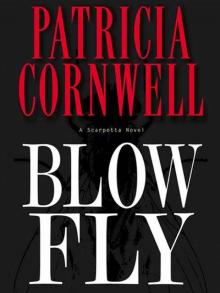 Blow Fly
Blow Fly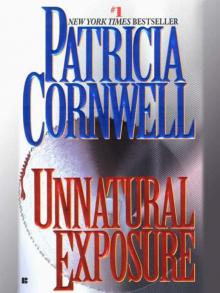 Unnatural Exposure
Unnatural Exposure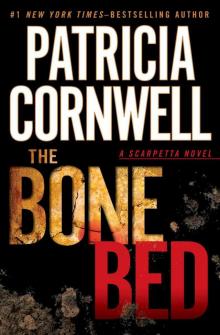 The Bone Bed
The Bone Bed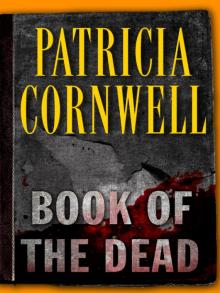 Book of the Dead
Book of the Dead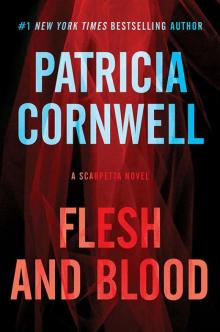 Flesh and Blood: A Scarpetta Novel (Scarpetta Novels Book 22)
Flesh and Blood: A Scarpetta Novel (Scarpetta Novels Book 22)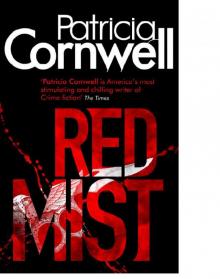 Red Mist
Red Mist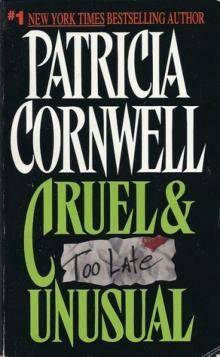 Cruel & Unusual
Cruel & Unusual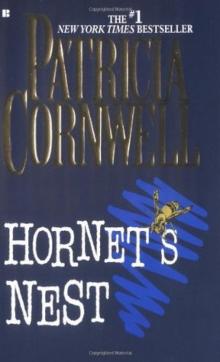 Hornet's Nest
Hornet's Nest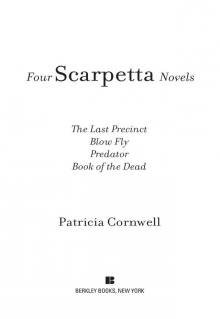 Four Scarpetta Novels
Four Scarpetta Novels Scarpetta's Winter Table
Scarpetta's Winter Table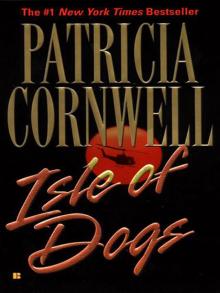 Isle of Dogs
Isle of Dogs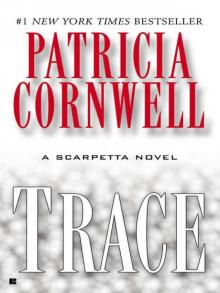 Trace
Trace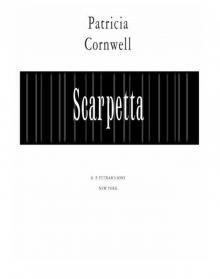 Postmortem
Postmortem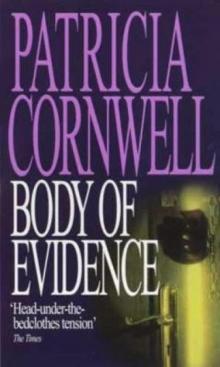 Body of Evidence ks-2
Body of Evidence ks-2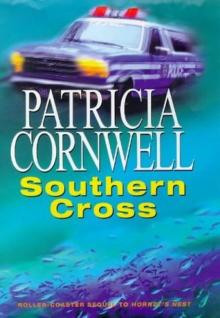 Southern Cross
Southern Cross All That Remains
All That Remains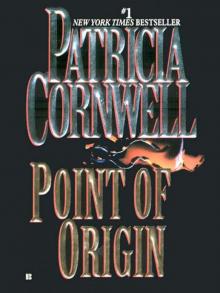 Point of Origin
Point of Origin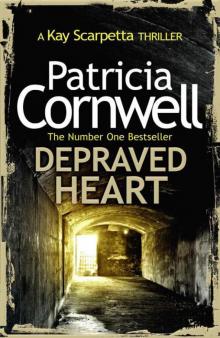 Depraved Heart
Depraved Heart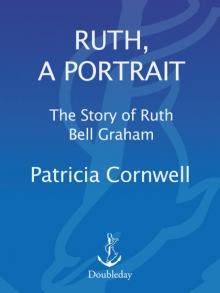 Ruth, a Portrait: The Story of Ruth Bell Graham
Ruth, a Portrait: The Story of Ruth Bell Graham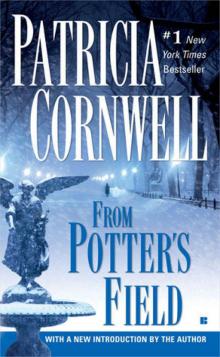 From Potter's Field
From Potter's Field Flesh and Blood
Flesh and Blood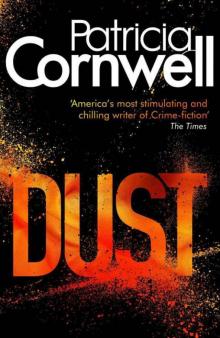 Dust
Dust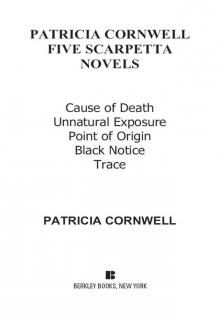 The Body Farm
The Body Farm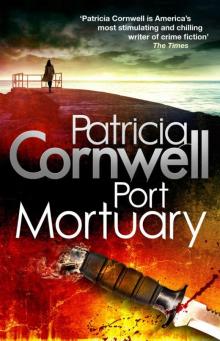 Port Mortuary
Port Mortuary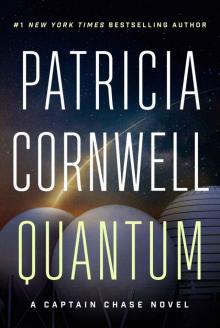 Quantum
Quantum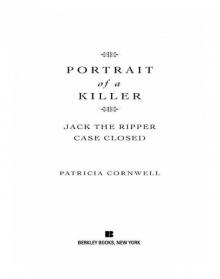 Portrait of a Killer: Jack the Ripper - Case Closed
Portrait of a Killer: Jack the Ripper - Case Closed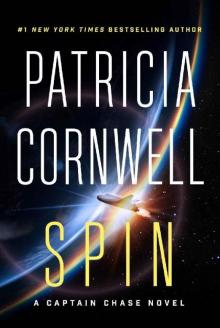 Spin (Captain Chase)
Spin (Captain Chase)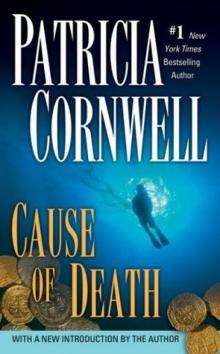 Cause of Death
Cause of Death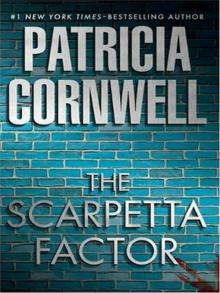 The Scarpetta Factor
The Scarpetta Factor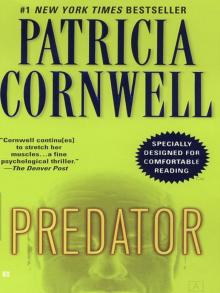 Predator
Predator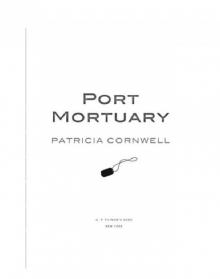 Scarpetta 18 - Port Mortuary
Scarpetta 18 - Port Mortuary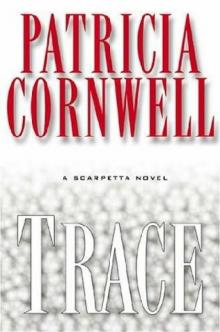 Trace ks-13
Trace ks-13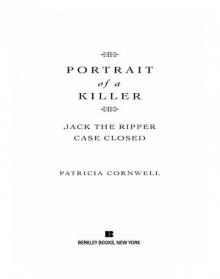 Portrait of a Killer
Portrait of a Killer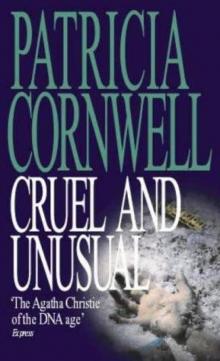 Cruel and Unusual ks-4
Cruel and Unusual ks-4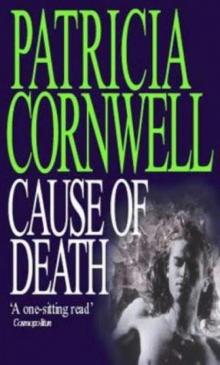 Cause Of Death ks-7
Cause Of Death ks-7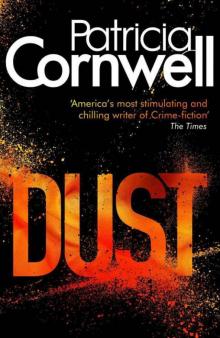 Dust ks-21
Dust ks-21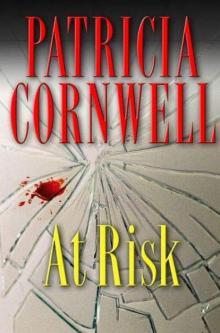 At Risk wg-1
At Risk wg-1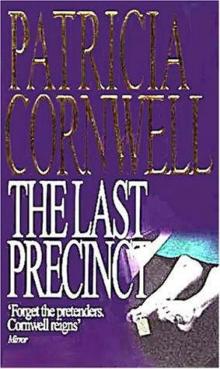 The Last Precinct ks-11
The Last Precinct ks-11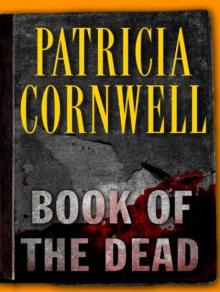 Book of the Dead ks-15
Book of the Dead ks-15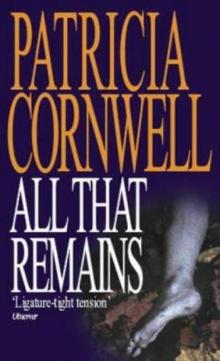 All That Remains ks-3
All That Remains ks-3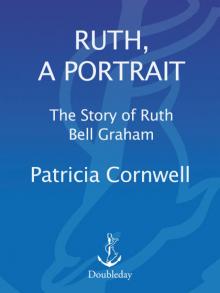 Ruth, a Portrait
Ruth, a Portrait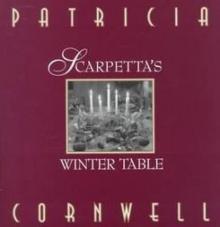 Scarpetta's Winter Table (kay scarpetta)
Scarpetta's Winter Table (kay scarpetta)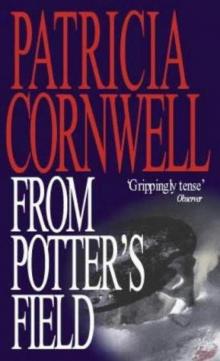 From Potter's Field ks-6
From Potter's Field ks-6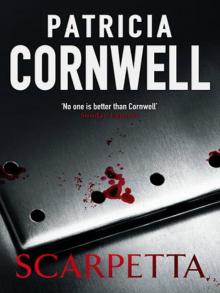 Scarpetta
Scarpetta Isle of Dogs jhabavw-3
Isle of Dogs jhabavw-3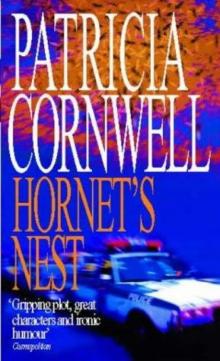 Hornet's Nest jhabavw-1
Hornet's Nest jhabavw-1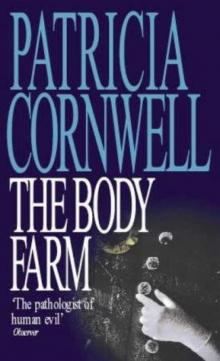 The Body Farm ks-5
The Body Farm ks-5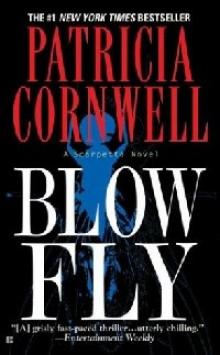 Blow Fly ks-12
Blow Fly ks-12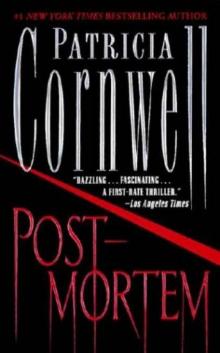 Post Mortem
Post Mortem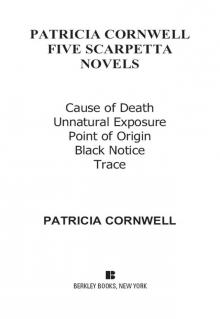 Five Scarpetta Novels
Five Scarpetta Novels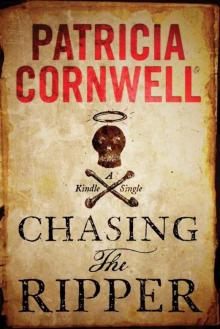 Chasing the Ripper (Kindle Single)
Chasing the Ripper (Kindle Single)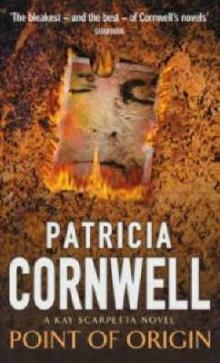 Point of Origin ks-9
Point of Origin ks-9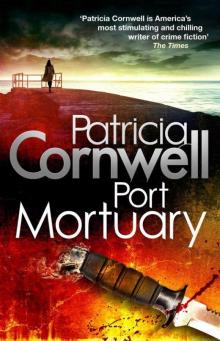 Port Mortuary (2010)
Port Mortuary (2010)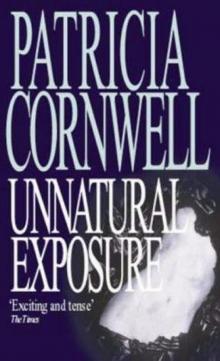 Unnatural Exposure ks-8
Unnatural Exposure ks-8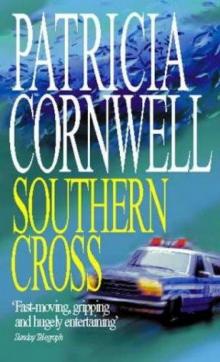 Southern Cross uhabavw-2
Southern Cross uhabavw-2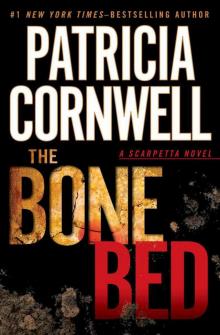 The Bone Bed ks-20
The Bone Bed ks-20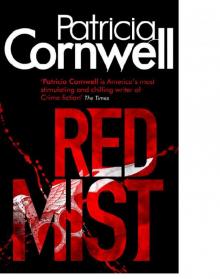 Red Mist ks-19
Red Mist ks-19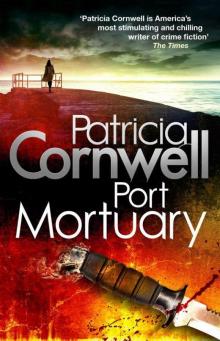 Port Mortuary (2010) ks-18
Port Mortuary (2010) ks-18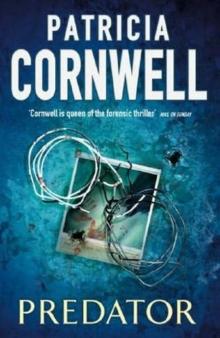 Predator ks-14
Predator ks-14